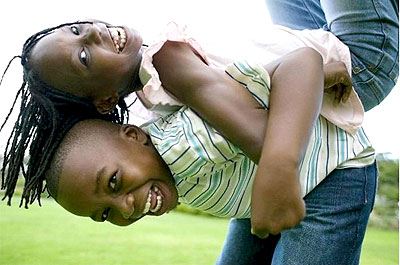Martha Karungi and Thomas (not real names) went to the same high school, and even though they majored in different courses, they went to the same university.Throughout university, they lived together and were practically engaged. Karungi had her first baby right after university. They had been together six years before getting officially married. They were the perfect couple.


Martha Karungi and Thomas (not real names) went to the same high school, and even though they majored in different courses, they went to the same university. Throughout university, they lived together and were practically engaged. Karungi had her first baby right after university. They had been together six years before getting officially married. They were the perfect couple. Then Thomas lost his job and became an ever-inebriated irritated partner who took it out on his wife. She tolerated his physical and emotional harassment for more than two years. When the violence was full-blown and threatened the lives of their three children, Karungi felt defenceless. She held on, hoping he would go back to being the man she once knew. The marriage became corrosive and basically, it took its toll on her. She filed for divorce after an 11-year-old relationship. At 32 years, Karungi is one woman with a divorce behind her and three pre-teenagers she has to bring up on her own. The absence of their father has made them hostile and rebellious. As a single mother, things couldn’t get harder. Without their father, her children to this day, look at her like she is the one who drove him away. They have no understanding of what happened as they were young and she is frustrated that she still strains to set the record straight.The reasons for divorce and separation may be anything ranging from a total lack of interest in one’s partner or abuse to sexual incompatibility but the gravity of this sad ending is massive. Pastor Richard Gasana, a marriage counselor, compares separating from someone you have been united with both emotionally and physically to ‘taking a sword and cutting a person into two’. "These two people become one in many ways and the fact that they are not separating because of death, is bound to have major impacts on their lives,” he says. Therefore, an attempt at another union usually ends up just like the previous one because the wounds caused by the past nuptials heal slower than a moving snail.Yet if you look around, divorce and separation seem to be a trend these days, with the parties involved selfishly tearing at each other, forgetting the impact this is going to have on them and their young ones if any. What happens to the children? Parents do not seem to realise that the second they decide to separate; they give up control of their offspring and they need much more than just sustenance. If things get ugly, and the divorce row shifts to court, who is a judge tell you how often you get to see your child? Do people have any idea how this affects a child in various dimensions.According to Pastor Gasana, the magnitude of how these children are affected depends greatly on their age. He goes on to add that people seem to shun the fact that infants get affected as well, giving reason that they are too young to understand what is going on. This is not the case however. "These infants,” Gasana says, "Get used to their parents’ voice sounds and are attached to their feel and touch. When they have to be taken to relatives while their own parents sort themselves out, they tend to lose identity of the people they were beginning to know. This is bound to deter their growing rate.”Take a child in Pre-school for instance, research confirms they will definitely miss the parent who moved out and have a greater need for protection. They might, because of their anxiety and fears, decline in their most recent developmental accomplishment. They might have a hard time sleeping, be fearful, irritable, demanding, or depressed and eventually withdrawn. Generally, children aged five to eight years, can be more self-blaming and verbal about their sadness. They tend to be forgetful and appear to be in a dream-like state. Counselor Gasana says they develop trust issues and do not want to get attached to anyone else apart from their parents. Pre-teens are affected rather differently. Children often become intensely angry at their parents’ divorce at this age. They may blame the parents or even reject one of them, most commonly the parent with whom they live with. Boys are more likely to become aggressive while girls are more likely to become withdrawn. They act out in school and their performance is often affected as well.Adolescents also get angry and feel pain at the loss of the family they once had. Some of them will feel more like adults and even take up responsibilities and concerns that their parents should have. For example, they may express worries about the future of the family or the wellbeing of younger siblings.Performance at school often diminishes and can lead to dropping out early from the educational path. And where does that leave them? In most cases, almost automatically if you may, school dropouts do not fare well in this fast economic growing society so they turn to all sorts of dubious ways to survive.This in turn causes serious problems to the community and the nation as a whole. Separation and divorce are big wars where neither party walks away without wounds; that includes children. It robs them of the parental love they were getting from both parents. It shatters them to pieces and eventually becomes such an irritating itch that must be scratched at all times.


